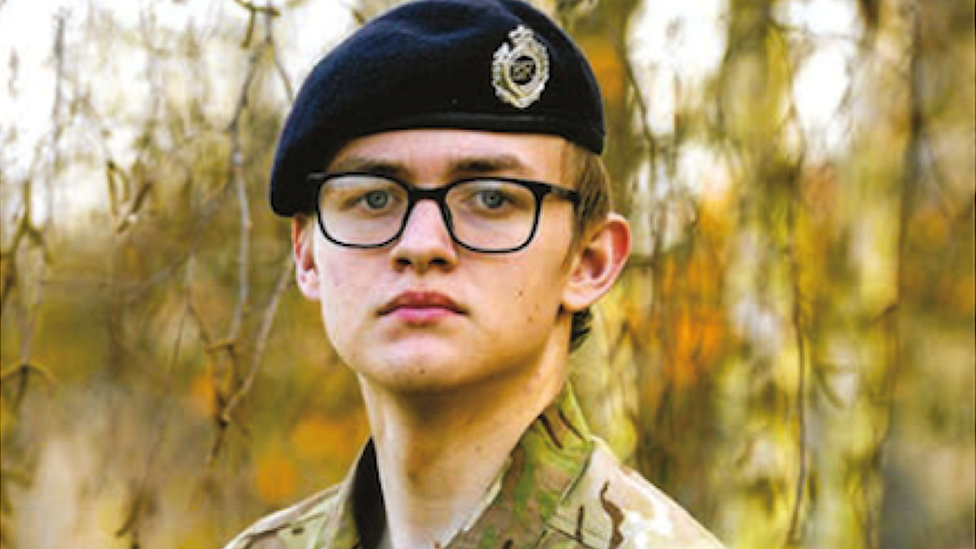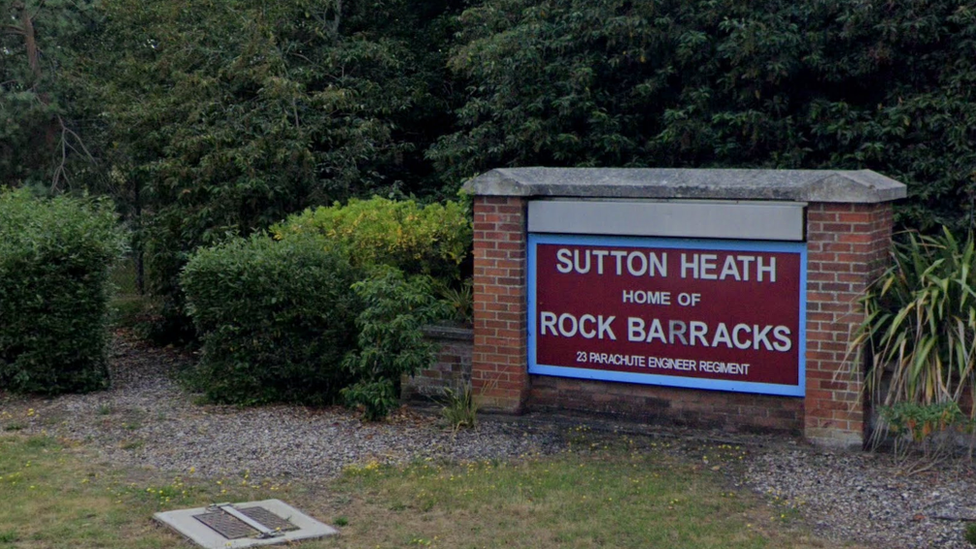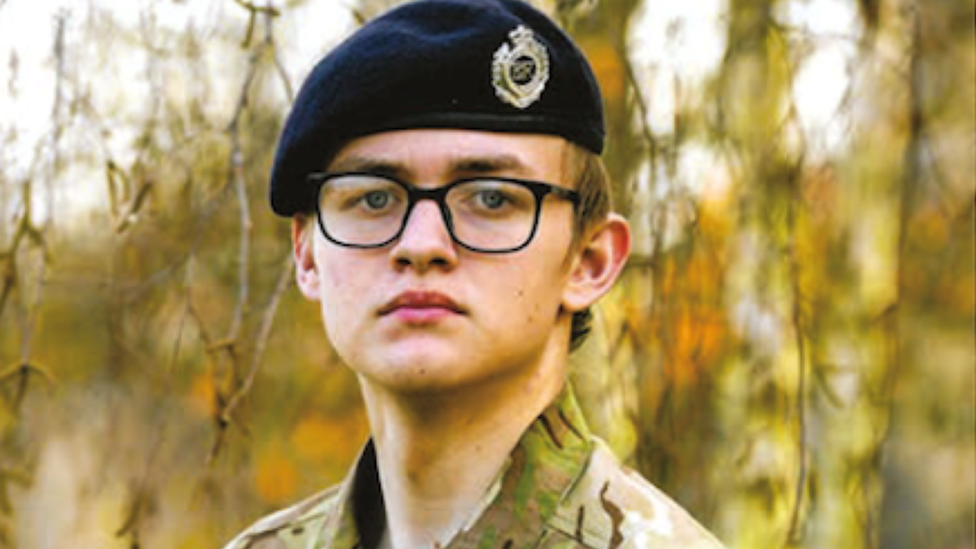Woodbridge soldier's heatstroke death was avoidable - report
- Published

Sapper Connor Morrison was described as a "truly selfless and kind-hearted professional soldier"
A soldier who died from exertional heatstroke may have survived if he had been treated earlier, a report found.
Sapper Connor Morrison, 20, of 23 Parachute Engineer Regiment stationed in Woodbridge, Suffolk, collapsed during a group run on 21 July 2022.
A Defence Safety Authority (DSA) report, external said medics and other soldiers failed to treat him in time.
A British Army spokesperson said it was committed to minimising the chance of a repeat incident.
In a tribute, his commanding officer Lt Col Jack Crossley described Sapper Morrison as a "professional soldier with much promise" who was a "loyal friend".
'Weaving side-to-side'
The late diagnosis of heatstroke "may have significantly reduced Sapper Morrison's chances of survival," the panel said.
The soldier, from Erskine in Renfrewshire, Scotland, "struggled" at multiple points throughout the run according to witnesses and was "weaving from side-to-side" immediately before collapsing at the 8km (5 miles) mark.
His collapse followed several days of hot weather but the panel said the temperature that morning was not a factor.
He died in Ipswich Hospital two days later.
The DSA found multiple contributory factors for the soldier's collapse.
It concluded "on the balance of probabilities Sapper Morrison died of exertional heatstroke".
Other participants on the run not having completed all heat illness prevention training "may have reduced the likelihood of an effective response", the panel added.
It also noted Sapper Morrison should have had a routine fitness assessment upon arriving at the Suffolk barracks a week prior.
None of the nine people on the run were carrying water which also meant there was no way to cool down or rehydrate him when he collapsed.
Attempts to cool Sapper Morrison did not happen until 31 minutes after his collapse, which was outside of the recommended treatment window.
Insufficient guidance
The panel said there were "sufficient indicators to support an immediate heatstroke diagnosis but this was not acted upon immediately".
It stated the ambulance call handler, the paramedic on site and military personnel all missed the opportunity to diagnose Sapper Morrison, and said that clinical guidance to ambulance staff on heatstroke was "not sufficient".

Sapper Morrison died in July 2022 after collapsing at Rock Barracks in Sutton Heath, near Woodbridge
Air Marshal Steve Shell, director general of the DSA, concluded the report stating that exertional related incidents would continue to happen "given the challenging nature of military training" but there was a "responsibility to reduce all risks".
"Had effective measures been applied immediately, Sapper Morrison may have survived," he said.
The DSA made 41 recommendations, including that heat illness prevention and recognition training was completed.
A British Army Spokesperson said: "Our thoughts and deepest sympathies remain with Sapper Morrison's family and friends at this difficult time.
They continued: "We take our responsibilities as an organisation extremely seriously and are wholly committed to improving organisational learning to minimise the chances of repetition."
The East of England Ambulance Service Trust (EEAST) said it submitted "significant evidence" to the inquiry and it was "disappointing to see this is not reflected in the findings".
"Our paramedic carried out the correct procedures to assess the patient and began treatment for heatstroke within minutes of arrival, in line with national guidelines," an EEAST spokesman said.

Follow East of England news on Facebook, external, Instagram, external and X, external. Got a story? Email eastofenglandnews@bbc.co.uk, external or WhatsApp 0800 169 1830
Related topics
- Published28 January 2024

- Published26 September 2022

- Published2 August 2022
